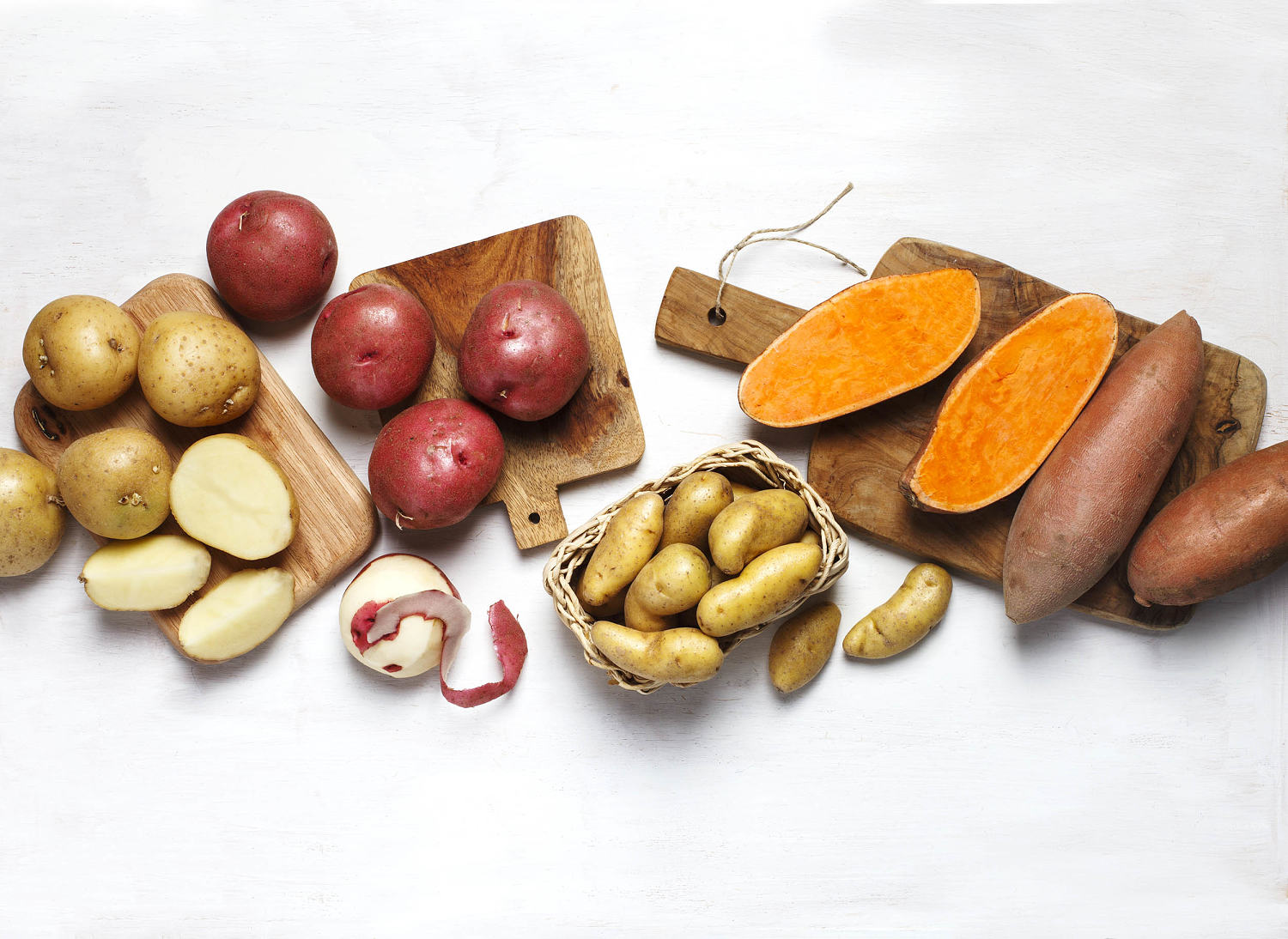
WHAT ARE THE HEALTHIEST POTATOES? THESE 2 TYPES HAVE THE MOST NUTRIENTS, DIETITIANS SAY
There's a whole rainbow's worth of potatoes to enjoy. And whether you prefer red, yellow or even purple potatoes, you'll get a good amount of energizing carbohydrates, gut-healthy fiber and essential vitamins.
"Potatoes are mostly known for containing carbohydrates, which is not a bad thing," says Natalie Rizzo, registered dietitian and TODAY.com nutrition editor. Our carb-conscious culture tends to shy away from potatoes for this reason, but the carbohydrates naturally present in the veggie aren't a problem, she says.
Potatoes — particularly the skin — also contain fiber, which is helpful for gut health, heart health and weight loss, Rizzo says. Surprisingly, potatoes also provide protein, she adds. "It's not a ton, maybe 2 or3 grams per serving," Rizzo says. "But it's still more than a lot of other vegetables offer."
While potatoes "get a bad rap," they're also a good source of vitamin C and potassium, registered dietitian Theresa Gentile tells TODAY.com.
And they provide what's known as "resistant starch," which ferments in the gut and is beneficial for your microbiome, says Gentile, who is also a spokesperson for the Academy of Nutrition and Dietetics. "It's good for gut health, better glycemic control and possibly improved cholesterol metabolism," she says.
What are the healthiest potatoes?
All potatoes are healthy, the experts agree. But some provide a few nutritional extras. So, when you're looking for the healthiest potatoes, keep color in mind.
While all potatoes provide healthy nutrients, "if you just have room for one potato in your day, I would choose the one that is the most colorful, whether that's a sweet potato or purple potato," Gentile says.
Both of these varieties boast all the nutrients of any potato — carbs, fiber, protein — plus unique phytonutrients, including antioxidants.
"Because of the anthocyanins in the purple and the carotenoids in the sweet potato," Gentile explains, "both of them will have these antioxidant, anti-inflammatory properties."
Sweet potatoes
Sweet potatoes have about triple the amount of beta-carotene (which the body converts to vitamin A) that you'll find in white potatoes, Gentile says, which is reflected in their orange color.
Vitamin A is especially helpful for eye health, as TODAY.com explained previously. A single medium sweet potato can provide an entire day's worth of vitamin A.
And, like other potatoes, they're a great source of fiber, healthy carbohydrates and potassium.
Purple potatoes
Purple potatoes are technically a type of sweet potato, Rizzo says. So they provide a lot of the same benefits as sweet potatoes, plus one unique nutrient: They're known for containing large amounts of anthocyanins, a type of plant pigment that may have antioxidant properties, Gentile says.
These compounds, which are thought to be anti-inflammatory and help reduce "bad" cholesterol, are also found in dark colored fruit, like blueberries and blackberries.
However, Rizzo notes, purple potatoes can be harder to find and a little more expensive than other potato varieties.
And, all that said, it's a "huge misconception" that sweet potatoes are vastly healthier than white potatoes, Rizzo says. It's not that one has so many more nutrients than the other, she explains, they just have different sets of nutrients: White potatoes contain a ton of vitamin C while sweet potatoes win on vitamin A, for instance.
Other potatoes can be healthy, too!
You really can't go wrong with a potato.
"They're all highly nutritious," Gentile says, "and they're a useful food for the prevention of chronic diseases."
White potatoes, red potatoes and gold potatoes, tend to have very similar nutrient profiles — including carbohydrates, fiber and protein — for about the same number of calories. In addition, they each offer some extra nutritional benefits.
One small white potato, for instance, contains about 15% of your daily potassium Rizzo says, which is more than a banana, in addition to about 30% of your daily vitamin C. And gold potatoes will give you a small boost of vitamin K, she adds.
So, whatever potato you prefer or that your favorite recipe calls for, you're getting a good helping of nutrients. But, knowing that different colors of potatoes can offer some additional benefits, it's worth mixing up your potato choices every once in a while or opting for a bag that contains multiple colors.
Keep your cooking method in mind
Obviously, foods like tater tots, potato chips and french fries are also made from potatoes, Rizzo says. But the way they're cooked — at high heat while drenched in oil — makes them less healthy options.
"You don't want to overdo it with (adding fat during the cooking process), because that takes a potato from a healthy vegetable side dish to something that's really high in calories and saturated fat," Rizzo says.
Potatoes roasted with a drizzle of your favorite healthy cooking oil is perfectly fine, she says, and if you like boiled potatoes (which don't require any added fat) that's great too. But a dish like mashed potatoes may hide saturated fat in cream and butter.
This article was originally published on TODAY.com
2024-07-17T20:27:26Z dg43tfdfdgfd